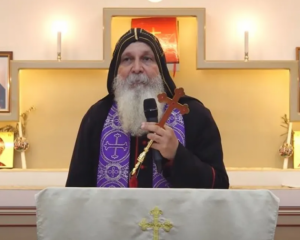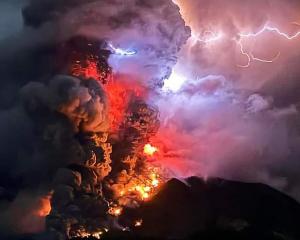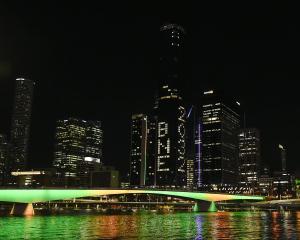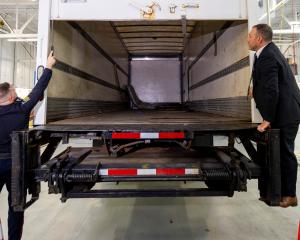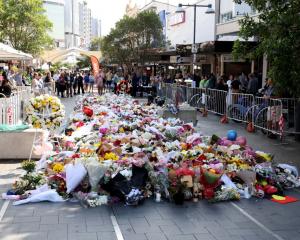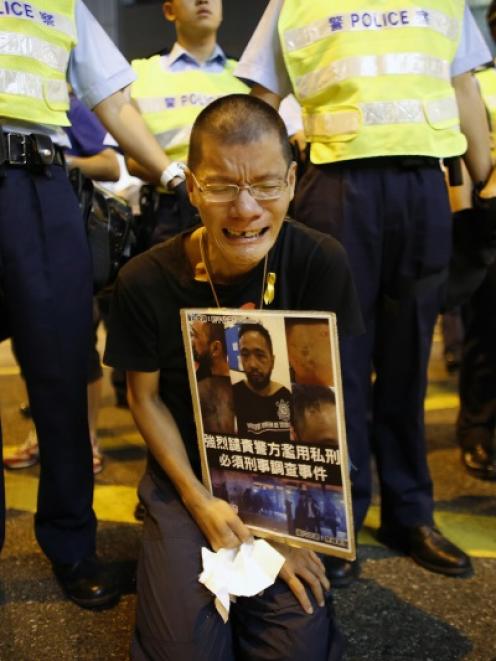
Police arrested about 45 protesters in the early hours of Wednesday (local time), using pepper spray against those who resisted, as they cleared a main road in the Chinese-controlled city that protesters had blocked with concrete slabs.
But footage of police beating a protester went viral, sparking outrage from some lawmakers and the public. Authorities said police involved in the beating would be suspended.
Outrage over the beating could galvanise support for the democracy movement in the city where the protests over Chinese restrictions on how it chooses its next leader had dwindled from about 100,000 at their peak to a few hundred.
Li, Asia's richest man and chairman of property developer Cheung Kong (Holdings) Ltd, had made no public comment on the protests but broke his silence to say if Hong Kong's rule of law broke down it would be the city's "greatest sorrow".
"Since the handover, the 'one country, two system' formula has protected Hong Kong's lifestyle," Li said, referring to the formula under which the city has been run since its return from British to Chinese rule in 1997.
"I urge everyone not to be agitated. I urge everyone not to let today's passion become the regret for tomorrow. I earnestly request everyone to return to their families," Li said in his first public comments on the protests.
"One country, two systems" allows wide-ranging autonomy and freedoms not enjoyed on the mainland and specifies universal suffrage for Hong Kong as an eventual goal.
But Beijing ruled on August 31 it would screen candidates who want to run for the city's chief executive in 2017, which democracy activists said rendered the universal suffrage concept meaningless.
British Prime Minister David Cameron said Britain should stand up for the rights of Hong Kong people and it was important they were able to enjoy freedoms and rights set out in the agreement with China before Britain handed Hong Kong back.
Such calls are likely to compound Chinese suspicion about what one Chinese official in Hong Kong referred to earlier on Wednesday as interference from outside forces.
"We hope the outside world will respect one country, two systems, will respect the Hong Kong ... government to deal with the situation in accordance with the law and does not send any wrong signal to this unlawful activity," the official told foreign reporters, adding that foreign media should cover the protests "objectively".
Earlier, Hong Kong Secretary for Security Lai Tung-kwok told a news conference police would investigate the beating of the protester after he was dragged into a dark corner next to the protest site police were trying to clear.
Several officers appeared to beat and kick a handcuffed protester for several minutes in footage aired by television broadcaster TVB.
Alan Leong, leader of the pro-democracy Civic Party, identified the person in the video as party member Ken Tsang Kin-chiu.
Civic Party legislator Dennis Kwok, a lawyer representing Tsang, said police also beat Tsang in a police station. Tsang was later taken to hospital, he said, and activists released photographs showing bruising on his face and body.
Police, without referring to Tsang, said in a statement they had used minimum force, including pepper spray, to disperse protesters who had gathered illegally.
The situation was calm through the rest of Wednesday. More than 100 people marched to police headquarters close to the main protest site to condemn the beating of Tsang.
'ENOUGH CONCESSIONS'
The altercation came after demonstrators swarmed into a tunnel on a four-lane thoroughfare late on Tuesday, halting traffic and chanting for universal suffrage.
"There were so many police. They punched people ... We are peaceful," a distraught student, Danny Chiu, told Reuters.
The tunnel in the Admiralty district near government headquarters was reopened after police cleared away barriers of concrete slabs.
The protesters are also calling for its pro-Beijing leader, Leung Chun-ying, to step down. But their campaign has caused traffic chaos and drained public support.
Leung said this week there was "zero chance" China's leaders would give in to protesters' demands and change the August decision limiting democracy. He postponed a question-and-answer session on Thursday due to what he called security risks.
China's ruling Communist Party believes it has offered enough concessions to Hong Kong in the past, and would give no ground because it wants to avoid setting a precedent for reform on the mainland, sources told Reuters.
The position was arrived at during a meeting of the new National Security Commission chaired by President Xi Jinping in the first week of October, the sources said.
On Tuesday, police used chainsaws and sledge-hammers to clear blockades on another major road in Admiralty, next to the Central business district. Hundreds of protesters then stormed into the nearby tunnel.
Despite the reopening of the two major roads there was no immediate sign the core protest zone outside government headquarters, where hundreds of tents remain pitched on a highway, would be cleared. Protesters are also in smaller groups in other parts of the city.
Police, criticised for using tear gas and batons in the first 24 hours of the protests, had adopted a more patient approach, counting on protesters to come under public pressure to clear main arteries. In recent days, police have selectively removed some barriers on the fringes of protest sites.
The police action early on Wednesday, however, suggested official patience may be wearing thin.





